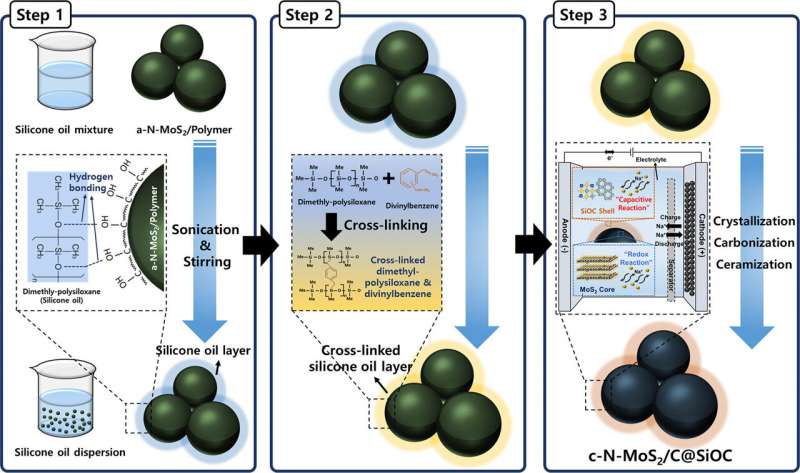Korean scientists develop cheap, high-performance anode for sodium-ion batteries
Up until now, few groups had ventured into developing a sodium high-capacity anode material because, compared to lithium ions, sodium ions are larger and, thus, cannot be stored as stably in graphite and silicon, which are widely used as anodes in such batteries.
But for the KIST team led by Sang-Ok Kim, this development was necessary because sodium is over 500 times more abundant in the Earth’s crust than lithium, which makes sodium-ion batteries 40% cheaper than their Li-ion counterparts.

To materialize this proposal, Kim and his group used molybdenum disulphide (MoS2), which has already garnered interest as a candidate for large-capacity anode materials because it can store a large amount of electricity.
The downfall of MoS2 is its high electrical resistance and structural instability, which tend to show up during battery operation. To overcome this limitation, the Korean researchers created a ceramic nano-coating layer using silicone oil, which is a low-cost, eco-friendly material. By mixing the MoS2 precursor with silicone oil and heat-treating the mixture, they were able to produce a stable heterostructure with low resistance and enhanced stability.
The evaluation of electrochemical properties indicated that this material could stably store at least twice as much electricity (~600 mAh/g) as the MoS2 material without coating and could maintain this capacity even after 200 rapid charge/discharge cycles.
“[We were able to] solve the high resistance and structural instability problems of MoS2 through the nano-coating surface stabilization technology. As a result, we developed a sodium-ion battery that can stably store a large amount of electricity,” Kim said. “Our method uses cost-effective, eco-friendly materials and, if adapted for the large-scale manufacturing of anode materials, can lower production costs and, hence, boost the commercialization of sodium-ion batteries for large-capacity power storage devices.”




